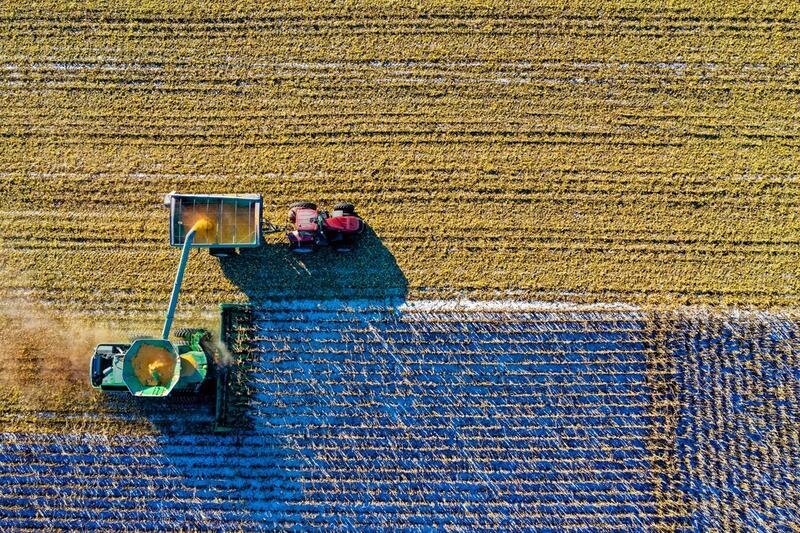How Will Your Jewish Mother Feed You on a Starving Planet?
It’s a time-honored stereotype: “Did you eat yet? Do you want more? You should eat more, bubbeleh, you look so skinny!” The Jewish mother, anxiously begging her children, her family, and anyone else in her home to please eat more, to please be nourished (and maybe tell her how good her cooking is). We, as a people, care about making sure everyone is well-fed. The nourishment of ourselves and of others can be construed as an innately Jewish and feminist act.
This compels us to apply that philosophy to the rest of the world. How, on a warming planet, do we make sure that everyone is getting enough to eat?
Technically speaking, we have enough food right now to feed the whole world. The problem, if we are to continue with this metaphor, is getting that food all around the table. Right now, one in seven people around the world are hungry, while a third of all food produced goes to waste. This isn’t a problem we can solve just by making sure we clean our own plates under our Jewish mothers’ watchful eyes—instead, it must be solved through broader structural changes to how food is distributed throughout the whole world.
This problem will become more and more urgent as the planet warms: crop yields are expected to decrease significantly with every degree increase. In addition, a study by the Food and Agriculture Organization of the United Nations suggests that we are going to need 70 to 100 percent more food by 2050. Though it’s true that over the past century or so we’ve seen a marked increase in the amount of food we are able to produce —thanks to technologies developed during the Green Revolution, such as fertilizers, pesticides, their corresponding pesticide-resistant crops, and various farming machines—that food isn’t necessarily high-quality, and isn’t necessarily well-distributed. For one thing, the vast majority of US cropland is currently used as cow feed, not to feed people.
I am not going to argue for veganism, but I am going to argue for a transformation of the conditions under which our food is produced. Only 55 percent of the world’s crop calories are directly used to feed people. Meanwhile, nine percent of US emissions come from crops, making farming not only something that will be affected by climate change, but something that—paradoxically—contributes to it. The American government spends 38 billion dollars each year to subsidize the meat and dairy industries. In contrast, we spent seventeen million dollars each year to subsidize fruits and vegetables. That’s only about .04 percent of the amount spent on meat and dairy. Meanwhile, in many areas within the US, vegetables are completely unaffordable, while these other foods—which have a much lower energy-return on energy-invested, and take much more cropland and carbon to produce—have their prices artificially deflated. In order to make sure everyone can eat, we need to think about which foods are being prioritized, and why.
Why are we prioritizing the type of corn that goes to feeding cows and producing ethanol, rather than crops we can actually eat? Why not, instead, redirect those government subsidies towards people who are producing diverse crops of vegetables, and who may actually be able to feed us on this warming planet?
There are some people already working on this and recognizing that, in order to survive, we must radically reimagine what our world looks like. One such organization is the Sunrise Movement, a group of youth-led Green New Deal activists. They have brought unprecedented attention to the idea that climate is a racial and social justice issue, and that these problems might be solved if we treat climate change as the emergency that it is. The proposed Green New Deal resolution, for example, mentions support for farm practices that enable equitable food distribution and “building a more sustainable food system that ensures universal access to healthy food.” The problem is getting people to care, especially in a culture where we are so disconnected from our food.
I’ll be the first to admit I don’t really know where my food comes from. I don’t know anything about farming or slaughtering to eat. My food comes pre-packaged, from the grocery store down the street. (I’m lucky in that I don’t live in a food desert.) In my suburban Jewish home, food was always lovingly prepared for me; but in our minds, the origin of that food wasn’t the field, it was the frozen goods aisle. I know that Jewish values demand that we make sure other people eat. It’s even in the Torah—there are injunctions to leave the corners of your field unharvested for those who do not have harvests of their own. There is the requirement, known as shmita, to allow your lands to lie unfarmed once every seven years, to ensure that this land will still be usable for future generations.
So, as Jewish women who are concerned that our families get enough to eat, it is imperative that we care about farm policy. We must support the Green New Deal and policies like it, and think about what an agricultural system that feeds everyone might look like. Food justice is a feminist issue, and a Jewish one. And it is relevant to all of us—as close to us as our dinner plates.








enlightening, thank you for writing and posting this essay.